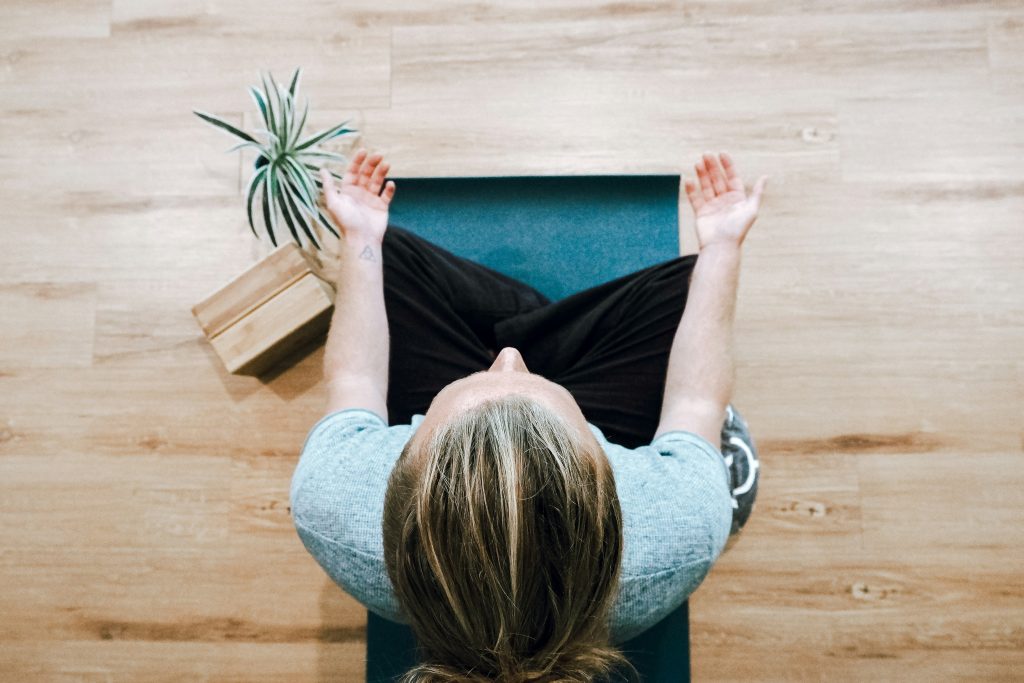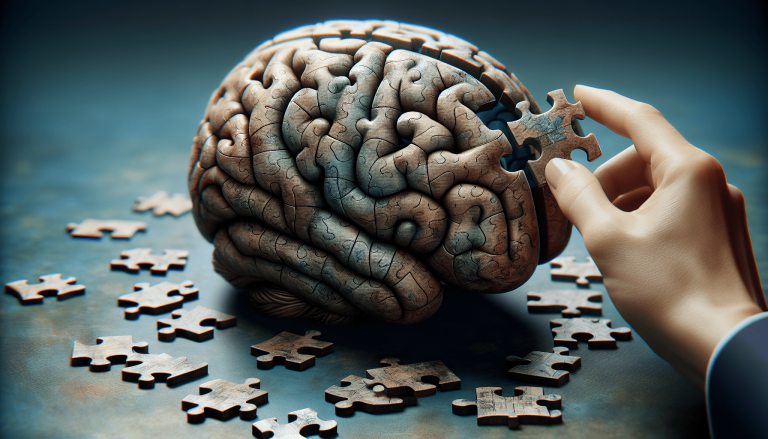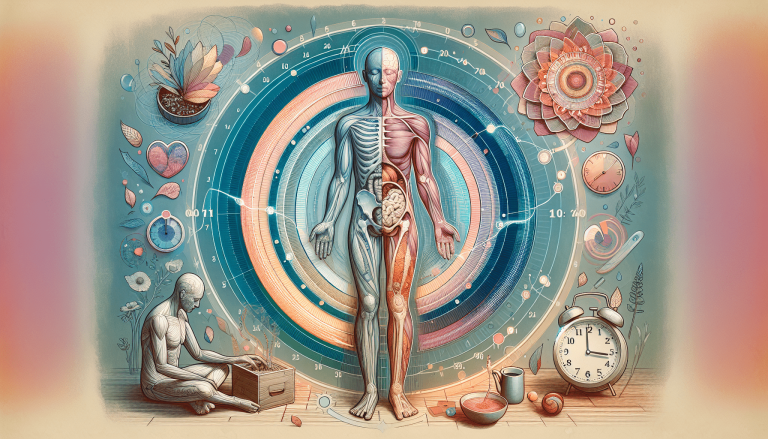How To Reduce Mental Stress?
Are you feeling overwhelmed and burdened by the weight of mental stress? In this article, we will explore effective strategies and techniques to help you alleviate and manage your mental stress. By implementing these tips in your daily routine, you can embark on a journey towards a healthier and more peaceful state of mind. So, let’s discover the key to reducing mental stress and reclaiming your inner balance.
Practice Mindfulness
Understand Mindfulness
One effective way to reduce mental stress is by practicing mindfulness. Mindfulness involves bringing your attention to the present moment and fully experiencing it without judgment. It allows you to be aware of your thoughts, emotions, and physical sensations, helping you disengage from stressful or negative thoughts. By understanding mindfulness and its benefits, you can begin incorporating it into your daily routine.
Start with Breathing Exercises
An easy way to start practicing mindfulness is by incorporating breathing exercises into your daily routine. Deep breathing exercises can help calm your mind, relax your body, and reduce stress. Take a moment to sit or lie down comfortably, and focus on your breath. Inhale slowly and deeply through your nose, feeling your lungs fill with air, and then exhale slowly through your mouth, releasing any tension or stress. Repeat this exercise several times, allowing yourself to fully focus on your breath and let go of any worries or distractions.
Try Meditation
Meditation is another powerful tool for reducing mental stress. It involves sitting quietly and focusing your attention on a specific object, such as your breath, a mantra, or a visualization. By practicing meditation regularly, you can train your mind to become more present and less reactive to stressors. Start with just a few minutes of meditation each day, gradually increasing the duration as you become more comfortable. There are various meditation apps and guided recordings available to help you get started.
Engage in Mindful Activities
In addition to breathing exercises and meditation, there are numerous mindful activities you can engage in to reduce mental stress. These activities involve fully immersing yourself in the present moment and paying attention to your senses. Some examples include taking a walk in nature, listening to calming music, practicing gentle yoga, journaling, or engaging in art or crafts. Find activities that resonate with you and make a conscious effort to engage in them regularly. By doing so, you can cultivate a sense of peace and calm in your daily life.
Exercise Regularly
Choose a Suitable Exercise
Exercise is not only beneficial for your physical health but also for your mental well-being. When choosing an exercise, consider your personal preferences and abilities. It could be anything from walking, biking, swimming, dancing, or participating in team sports. The key is to find an activity that you enjoy and look forward to, as this will make it easier to incorporate into your routine.
Set Realistic Goals
When starting an exercise routine, it’s important to set realistic goals. Begin with small, achievable targets and gradually increase the intensity or duration of your workouts over time. Setting unrealistic goals can lead to frustration and demotivation, which may hinder your progress. Remember, the purpose of exercise is to relieve stress, not add more pressure.
Create a Routine
To make exercise a consistent part of your life, establish a regular routine. Set specific times each week for your workouts and treat them as non-negotiable appointments with yourself. By incorporating exercise into your schedule, it becomes a habit rather than an occasional activity. Consistency is key to reaping the mental and physical benefits of exercise.
Enjoy Outdoor Activities
While any form of exercise is beneficial, engaging in outdoor activities can have additional advantages for your mental well-being. Spending time in nature has been shown to reduce stress, improve mood, and enhance overall well-being. Take advantage of the benefits of the great outdoors by going for a hike, bike ride, or simply spending time in a local park. Not only will you be exercising your body, but you’ll also be nourishing your mind and soul.

Manage Time Effectively
Prioritize Tasks
Managing your time effectively can significantly reduce mental stress. One way to do this is by prioritizing tasks. Determine which tasks are most important and need to be done first. This will help you focus on what truly matters and prevent you from feeling overwhelmed by an endless to-do list.
Break Larger Tasks into Smaller Ones
When faced with a particularly challenging or time-consuming task, breaking it down into smaller, manageable parts can make it feel more achievable. This approach allows you to focus on one step at a time, reducing the perceived burden and increasing your sense of accomplishment. By breaking down larger tasks, you can decrease stress and improve your productivity.
Set Deadlines
Setting deadlines for tasks can help you stay organized and motivated. Assign realistic deadlines to each task and hold yourself accountable to complete them within the designated time frame. By establishing deadlines, you can effectively manage your time, reduce procrastination, and alleviate stress caused by last-minute rush.
Avoid Procrastination
Procrastination is a common habit that often leads to increased stress levels. To manage your time effectively and reduce mental stress, it’s important to overcome procrastination. Start by identifying any reasons or triggers that contribute to your tendency to procrastinate. Then, implement strategies such as breaking tasks into smaller parts, creating a schedule, or seeking accountability to overcome procrastination and stay on track.
Practice Relaxation Techniques
Deep Breathing
Deep breathing exercises are not only useful for mindfulness but also for relaxation. By taking slow, deep breaths and focusing on your breath, you can activate the body’s relaxation response and promote a sense of calm. Practice deep breathing exercises whenever you feel stressed or overwhelmed, allowing your breath to bring you back to a state of relaxation.
Progressive Muscle Relaxation
Progressive muscle relaxation is a technique that involves systematically tensing and releasing different muscle groups to induce physical relaxation. Start by tensing a muscle group, such as your shoulders, for a few seconds, and then release the tension, allowing the muscles to relax. Move through your body, gradually releasing tension from each muscle group. Progressive muscle relaxation can help you release physical and mental tension, promoting a sense of relaxation and well-being.
Yoga
Yoga combines physical movements, breathing techniques, and meditation to promote relaxation and reduce stress. Regular yoga practice can help you increase flexibility, improve strength, and cultivate mindfulness. There are various styles and levels of yoga, making it accessible to people of all ages and fitness levels. Whether you prefer a gentle, restorative practice or a more vigorous flow, incorporating yoga into your routine can be an effective way to relax the mind and body.
Tai Chi
Tai Chi is a gentle form of martial art that involves slow, deliberate movements and deep breathing. It is known for its calming and meditative qualities, making it an excellent relaxation technique. Practicing Tai Chi can help improve balance, flexibility, and overall well-being. Consider joining a Tai Chi class or following online tutorials to experience the stress-reducing benefits of this ancient practice.

Get Sufficient Sleep
Establish a Bedtime Routine
Getting sufficient sleep is crucial for managing mental stress. Establishing a consistent bedtime routine can help signal to your body that it’s time to unwind and prepare for sleep. Create a relaxing routine that suits your preferences, such as taking a warm bath, reading a book, or practicing relaxation techniques. Allow yourself enough time to wind down before bed to ensure a restful and rejuvenating sleep.
Create a Restful Environment
Your sleep environment plays a significant role in the quality of your sleep. Make your bedroom a calm, comfortable, and clutter-free space that promotes relaxation. Use blackout curtains or eye masks to block out excess light, invest in a supportive mattress and pillows, and maintain a cool and quiet temperature. By creating a restful environment, you can enhance the quality of your sleep and improve your overall well-being.
Limit Exposure to Electronic Devices
The blue light emitted by electronic devices such as smartphones, tablets, and computers can interfere with your body’s production of melatonin, a hormone that regulates sleep. To optimize your sleep quality, limit your exposure to electronic devices, especially in the evening. Establish a “digital curfew” by turning off screens at least an hour before bed to allow your brain to relax and prepare for sleep.
Avoid Caffeine and Heavy Meals Before Bed
Consuming caffeine or heavy meals close to bedtime can disrupt your sleep and increase mental stress. Caffeine is a stimulant that can interfere with falling asleep, while heavy meals can lead to discomfort and indigestion. To promote restful sleep, avoid consuming caffeine in the late afternoon or evening and opt for lighter, well-balanced meals at least a few hours before bed.
Maintain a Healthy Diet
Eat Balanced Meals
A healthy diet plays a crucial role in managing mental stress. Consuming balanced meals that include a variety of nutrients can support your overall well-being. Aim to include a mix of carbohydrates, proteins, and healthy fats in every meal. Incorporate whole grains, lean proteins, fruits, vegetables, and healthy oils into your diet. Eating a balanced diet provides your body and mind with the necessary fuel to function optimally and reduces the risk of stress-related health issues.
Include Fruits and Vegetables
Fruits and vegetables are packed with essential vitamins, minerals, and antioxidants that can help reduce stress and boost your mood. Incorporate a wide variety of colorful fruits and vegetables into your daily meals and snacks. Consider adding berries, leafy greens, citrus fruits, and cruciferous vegetables to your diet. These nutrient-rich foods can support your mental well-being and provide a natural source of stress relief.
Stay Hydrated
Dehydration can negatively impact your physical and mental well-being. Make sure to drink an adequate amount of water throughout the day to stay hydrated. Carry a water bottle with you and aim to drink at least eight glasses of water per day. Proper hydration supports your body’s functions, aids in digestion, and helps maintain cognitive function, reducing the risk of mental stress.
Limit Sugar and Caffeine Intake
While sugar and caffeine can provide temporary bursts of energy, they can also contribute to increased mental stress. Excessive consumption of sugar can lead to energy crashes and mood swings, while caffeine can disrupt sleep and exacerbate feelings of anxiety or restlessness. Try to limit your intake of sugary foods and beverages, as well as caffeinated drinks like coffee, tea, and energy drinks. Opt for healthier alternatives or reduce your consumption to promote overall well-being and mental balance.

Socialize and Connect with Others
Spend Time with Loved Ones
Human connection is essential for managing mental stress. Make an effort to spend time with loved ones, whether it’s family, friends, or your partner. Engage in meaningful conversations, participate in activities together, or simply enjoy each other’s company. Sharing experiences and emotions with others can provide support, reduce feelings of loneliness, and contribute to your overall happiness and well-being.
Join Social or Interest Groups
Joining social or interest groups can provide opportunities to meet new people who share similar interests. Engaging with like-minded individuals can foster a sense of connection and belonging, ultimately reducing feelings of stress or isolation. Consider joining clubs, organizations, or hobby groups in your community to expand your social network and enhance your overall well-being.
Practice Active Listening
When engaging in conversations with others, practice active listening. This means giving your full attention to the person speaking, without judgment or interruption. By actively listening, you can show empathy, validate the other person’s feelings, and strengthen your relationships. Active listening promotes meaningful connections and can help alleviate mental stress by fostering open communication and understanding.
Seek Emotional Support
During times of increased stress or difficulty, don’t hesitate to seek emotional support from friends, family, or mental health professionals. It’s important to have a support system in place that you can rely on during challenging times. Whether you need someone to listen, offer advice, or generate solutions, reaching out for emotional support can provide relief, perspective, and reassurance.
Set Boundaries
Learn to Say No
Learning to say no is a valuable skill for managing mental stress. Understand your limits and boundaries and don’t be afraid to decline requests or commitments that overwhelm you. Prioritize your well-being and only take on responsibilities that align with your priorities and values. By setting boundaries and saying no when necessary, you can prevent burnout and maintain a healthy work-life balance.
Delegate Tasks
You don’t have to do everything on your own. Take advantage of opportunities to delegate tasks and responsibilities to others. This can be at work, home, or in other areas of your life. Recognize when you need assistance, communicate your needs, and trust others to contribute. Delegating tasks can help lighten your workload and reduce the mental stress associated with trying to do everything yourself.
Establish Work-Life Balance
Maintaining a healthy work-life balance is essential for managing mental stress. Strive to create boundaries between your work and personal life, allowing yourself time to rest, recharge, and engage in activities that bring you joy. Determine your priorities and allocate your time and energy accordingly. Remember, harmony between work and personal life is crucial for your overall well-being and mental health.
Avoid Overcommitting
To prevent overwhelming stress, avoid overcommitting yourself. It’s natural to want to please others or take on additional responsibilities, but remember that your own well-being should always come first. Be realistic about what you can handle and carefully consider your commitments before taking on more. By avoiding overcommitting, you can maintain a balanced and manageable lifestyle.

Engage in Hobbies and Creative Activities
Discover and Pursue Your Passion
Engaging in hobbies and creative activities is an excellent way to reduce mental stress and cultivate a sense of fulfillment. Take the time to discover your passions and interests and make time for activities that bring you joy. Whether it’s painting, playing an instrument, cooking, gardening, or any other hobby, immerse yourself in activities that ignite your passion and allow you to express yourself.
Take Up a New Hobby
If you don’t already have a hobby, consider taking up a new one. Explore different activities or interests and be open to trying new things. Join a class or workshop that aligns with your interests, or explore hobbies through online tutorials or communities. Engaging in a new hobby can provide a source of stress relief, creativity, and personal growth.
Express Yourself Through Art or Writing
Art and writing can be therapeutic outlets for reducing mental stress. They allow you to express your thoughts, emotions, and creativity in a tangible form. Explore various artistic mediums or start a journaling practice to gain insight into your feelings and experiences. Whether it’s sketching, painting, writing poetry, or keeping a gratitude journal, find ways to express yourself creatively and enjoy the therapeutic benefits it brings.
Join a Club or Community of Interest
Engaging with others who share your interests can enhance your hobbies and provide a sense of belonging. Look for clubs, groups, or online communities centered around your hobbies or passions. Joining such communities can provide opportunities for learning, collaboration, and friendships. Connecting with like-minded individuals can boost your motivation and enjoyment in your hobbies, ultimately reducing mental stress.
Seek Professional Help if Needed
Recognize Signs of Chronic Stress
While incorporating various stress-reducing strategies into your life can be immensely beneficial, it’s essential to recognize when professional help may be needed. Chronic stress, characterized by persistent and long-term stress, can have a detrimental impact on your mental and physical health. If you’re experiencing symptoms such as anxiety, depression, sleep disturbances, or difficulty functioning in daily life, it’s important to seek professional help.
Consult a Mental Health Professional
If you’re struggling with managing mental stress on your own, don’t hesitate to consult a mental health professional. A psychologist, counselor, or therapist can provide guidance, support, and effective strategies for managing stress. They can help you identify underlying factors contributing to your stress and develop personalized coping strategies. Remember, seeking professional help is a sign of strength and a proactive step toward improving your mental well-being.
Explore Therapy Options
There are various types of therapy available to support individuals in managing mental stress. Cognitive-behavioral therapy (CBT) focuses on identifying and changing negative thought patterns and behaviors. Dialectical behavior therapy (DBT) emphasizes skills for managing intense emotions and developing interpersonal effectiveness. Other therapies, such as mindfulness-based stress reduction (MBSR) or acceptance and commitment therapy (ACT), incorporate relaxation techniques and acceptance of thoughts and emotions. Explore different therapy options to determine which approach aligns with your needs.
Consider Medication if Recommended
In some cases, medication may be recommended by a mental health professional to alleviate symptoms of chronic stress. Medication can be beneficial for managing conditions such as anxiety or depression, but it should always be prescribed and monitored by a healthcare professional. If medication is recommended, discuss the potential benefits and risks with your healthcare provider to make an informed decision regarding your mental health treatment.
In conclusion, managing mental stress requires a holistic approach that encompasses various strategies. By practicing mindfulness, exercising regularly, managing time effectively, practicing relaxation techniques, getting sufficient sleep, maintaining a healthy diet, socializing and connecting with others, setting boundaries, engaging in hobbies and creative activities, and seeking professional help if needed, you can reduce mental stress and improve your overall well-being. Remember, everyone’s journey is unique, so explore different strategies and find what works best for you. Prioritize your mental health and make self-care a priority in your life. By doing so, you can cultivate resilience, enhance your quality of life, and thrive in the face of stress.







